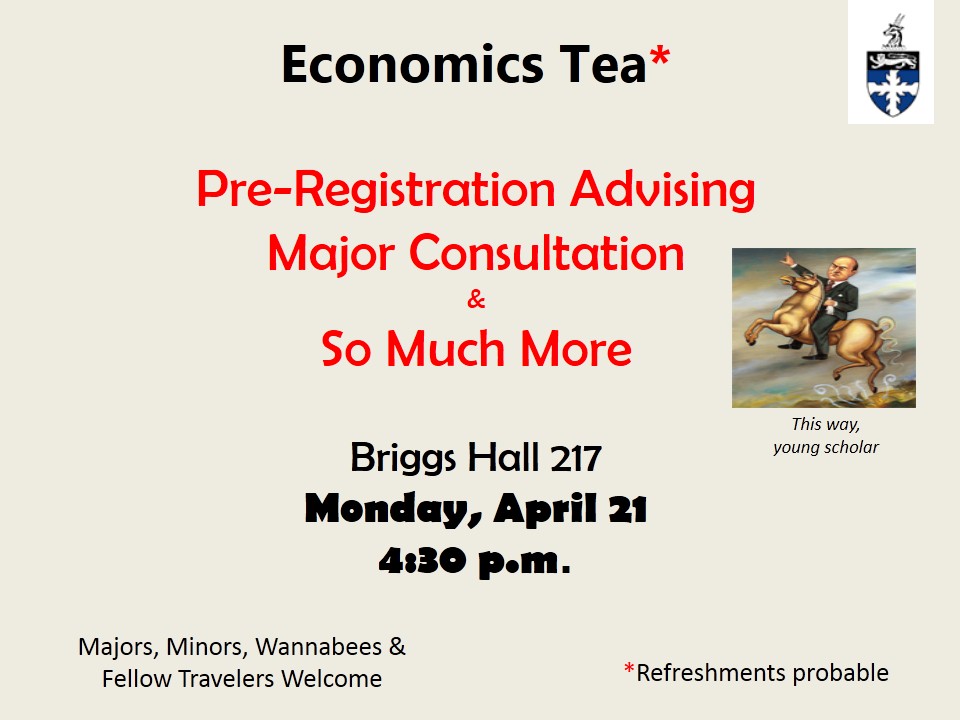Below are the course modalities for the Winter Term economics courses. If you have questions, please contact your (potential) instructor. For mixed-modality courses, you must register for the correct section. If you plan to be remote, register for the remote section. If you register for the in-person section, you are required to attend class in person each week after week 2.
ECON 100 Introductory Economics (1001): Professor Fitz’s section is remote synchronous. The class meets via Zoom at 1:50 – 3 p.m. MWF. Please note that there are two sections of ECON 100. If you prefer the in-person option, contact Professor Gerard.
ECON 100 Introductory Economics (1980): Professor Gerard’s section is in person. The class meeting time is 9:50 – 11 a.m. MWF. The class will meet via Zoom for the first two weeks, and then in person thereafter. If you do not want to meet in person, you should register for Professor Fitz’s section this term or Professor Lhost’s section next term.
ECON 204 Effective Altruism: Professor Fitz is teaching this in the remote synchronous mode. The class meets via Zoom from 12:30-1:40 p.m. MWF.
ECON 225 Decision Theory: Professor Galambos is teaching this course in a mixed modality, which means there are two sections: one in person and one remote. Class time is the same for both sections: 1:50-3:00 MWF. See the top of the page for details on mixed modality.
ECON 380 Econometrics: Both of Professor Lhost’s sections are remote asynchronous. Check the Economics 380 Moodle for further information.
ECON 444 Political Economy of Regulation: Professor Gerard is teaching this course in mixed modality, meaning that there will be two sections: one in person and one remote. Class time is the same for both sections: 9-10:50 a.m Tuesday and Thursday. See the top of the page for details on mixed modality.
ECON 475 Markets and Market Design: Professor Galambos is teaching this course in mixed modality, meaning that there will be two sections: one in person and one remote. Class time is the same for both sections: 8:30-9:40 MWF. See the top of the page for details on mixed modality.
ECON 601 Senior Experience, Reading Seminar: Professor Gerard is teaching this in mixed modality, on Tuesdays at 12:30. Please let him know which mode you prefer: in person or remote by filling out the Doodle poll & registering for the appropriate section (note: the current schedule incorrectly lists the remote mode on TR rather than on just T). Doodle poll is here. See the top of the page for details on mixed modality.
ECON 602 Senior Experience, Research Seminar: If you plan to take ECON 602, please connect with Professor Lhost about the expectations and logistics.

